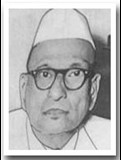Generalities
It affects nerves, causing numbness, weakness, trembling, and paretic conditions. It is the remedy for marasmus in children when nutrition is affected. In spite of good appetite, children emaciate, especially in lower extremities. It causes true metastatic condition. Rheumatism, occurs after checked diarrhoea. Gout recedes and other troubles follow. It has exudative tendency. Exudation may occur, as a metastatic condition or otherwise, into pleura, joints etc. It also causes alternating conditions, one diseased condition disappears and another appears, e.g. piles alternating with rheumatism. It is suitable, to newborn, or children especially boys, who suffer from hydrocele, epistaxis; it removes weakness, remaining after influenza. Oozing of blood, and moisture in newborn, from navel. Vomiting of large quantities of offensive fluid. Effects, remaining after operation on chest.
Worse
Cold air; wet. Checked secretions; esp. diarrhoea. Night. Fog.
Better
Loose stools. Motion.
Mind
Great anxiety and depression. Cross and irritable (children in marasmus). Thinking difficult; loss of comprehension. Inhuman; would like to do something evil, cruel.
Head
Cannot hold the head up, on account of weakness of neck. Brain feels tired, after conversation or mental effort. Veins distended on forehead.
Eyes
Blue rings, around the eyes. Hollow.
Nose
Bleed in boys.
Face
Dry, cold, wrinkled, as if old, in marasmus. Acne, with emaciation. Angioma of the face. Pale, hollow eyed.
Stomach
Emaciation progresses, with good appetite. Food passes undigested. Craving for bread, boiled in milk. Cutting, gnawing, burning pains, in stomach, at night in gastralgia. Feels, as if stomach is swimming in water; with coldness.
Abdomen
Hard lumps are felt in different parts of abdomen. It is bloated. Tuberculous peritonitis. Weak, sinking feeling in bowels. Piles, protruding, with burning from touch. Frequent desire to stools, but only a little blood passed.
Male
Hydrocele of children.
Females
Darting pain in left ovary. Menses suppressed.
Respiratory organs
Dry cough, following diarrhoea. Pressing sensation remains, after Pleurisy, in the affected side, impeding free breathing.
Neck and Back
Sudden aching pain in the back worse night; better motion. Pain in sacrum, due to piles. Back weak, with ovarian pain.
Extremities
Pain in shoulders, arms, wrists and ankles. Legs greatly emaciated. Cold, prickling, numb, fingers and toes. Inability to move the limbs, due to rheumatism. Contraction of limbs, from cramps or following colic.
Skin
Loose and flabby. Skin becomes purplish, after suppression of eruptions. Itching chilblains.
Follows well
Acon and Bry in pleurisy.
Related
Agar; Chin; Led; Nux-v.

